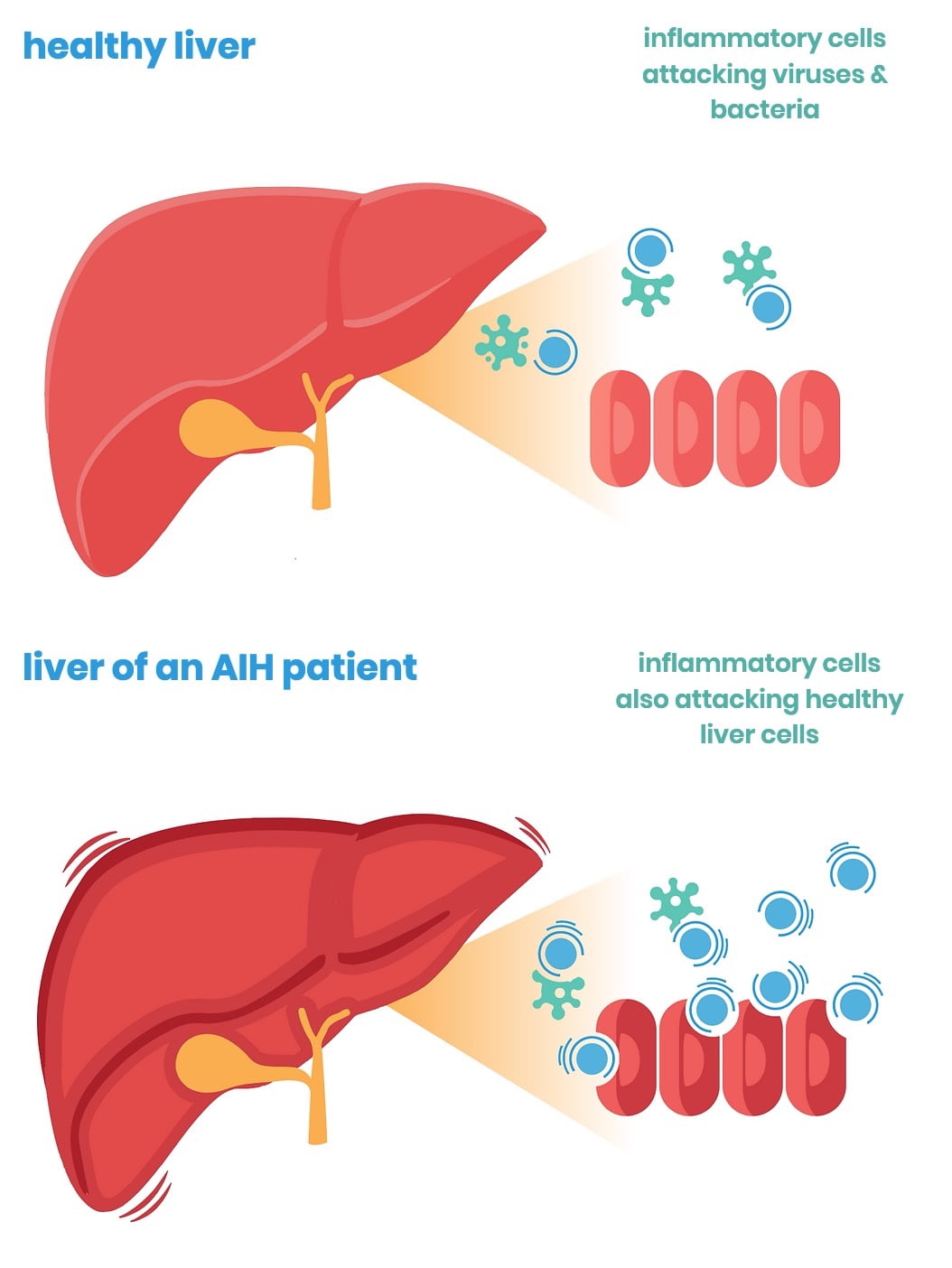AIH In-Depth
While autoimmune hepatitis (AIH) is a rare disease, it’s actually more common than you might think. Learn more about this disease and why liver fibrosis can develop.
A closer look.
While AIH is a rare disease, many patients have met others with the disease through the AIHA’s support groups or national conference and learned that they are not alone. In the United States, there are tens of thousands of people living with the disease.
Estimated AIH cases in the United States:
20 per 100,000
Adults:
66,200
3 per 100,000
Children: 9,930
Up to 45% of AIH patients have at least one additional autoimmune disease besides AIH. Patients are more likely to have multiple autoimmune diseases if they have a first-degree relative (parent, child, or sibling) with an autoimmune disease. In fact, 50% of AIH patients have a first-degree relative with an autoimmune disease.
Most common autoimmune diseases occurring with AIH and the percentage of AIH patients who have them:
- 18% – Autoimmune thyroid disease
- 10% – Inflammatory bowel disease
- 10% – Sjogren’s Syndrome
- 7% – Rheumatoid Arthritis
- 7% – Raynaud’s Phenomenon
- 5% – Celiac Disease
AIH is a disease characterized by overactive immune cells in the liver. Recent studies have shown that the rates of autoimmune disorders (such as Type 1 diabetes, rheumatoid arthritis, and celiac disease) are increasing in many regions worldwide. AIH seems to be no different. Scientists believe this increase in autoimmune diseases could be related to new exposures (such as new medications, sanitation practices, and pollutants) in our environment.
A normal immune system is made of inflammatory cells that protect against organisms like bacteria and viruses. When patients have AIH, the immune system becomes overactive, and the inflammatory cells identify the patient’s own liver cells as foreign and attack them.
This ongoing inflammation in the liver may result in the development of scar tissue (fibrosis) that can become more severe over time. When the scar tissue becomes advanced (cirrhosis), it can restrict blood flow through the liver and cause symptoms. Without treatment that controls inflammation, AIH patients with no or mild fibrosis are at risk of developing more severe fibrosis over time, and, eventually, cirrhosis.
How autoimmune hepatitis affects the liver:

